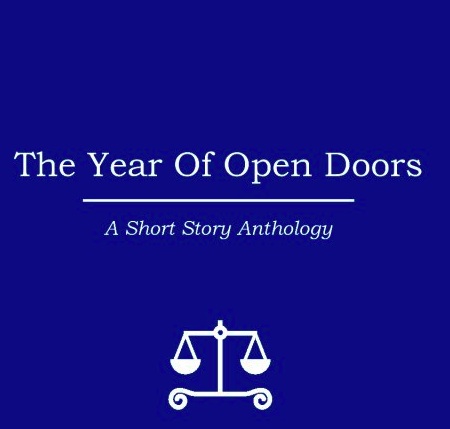The Year of Open Doors (2011) is an anthology of modern Scottish writing, with the input of writers from various social and cultural backgrounds, all of who make up the nation that Scotland is becoming. Each story offers a personal glimpse into the life of a modern Scottish person, although since there are so many stories, I will highlight some in particular which stand out in a unique way.
The anthology begins with a story with an open door “theme” built in – “One Year The Door Will Open” by Ryan Van Winkle – in which the narrator compares himself to a door, with which he has certain things in common. The door, he says, is painted and repainted constantly throughout its “life”, in ways that often reflect the mood of the people dwelling within, such as “argument red, family yellow, divorce brown”.
In “Omu Prin & Me” by Daibhidh Martin, a young man visiting a remote area of Scotland encounters an older man with a tragedy in his past, his wife having been swept away by a rip-tide, but who still manages to find joy in life (“I was enchanted, watching a sixty-year-old man dance so carefree. The older man has tried to come to terms with it by building a gate from pieces of debris he has found washed up on the shore – a poignant symbol of trying to bring back the spirit of his wife, and also a reflection of how things from far away places can eventually find their way to one’s home.
“Playground Rules” by Doug Johnstone (who has already become a prolific writer in Scotland) is another story tainted by tragedy; a young father takes his son to his first day at school, while coming to terms with causing the death of his wife in a car accident shortly after the son was born. Until this point he and his son had been coping, as he says that “We were in our own unburstable bubble back then”, before this day. Before long, the harsh re-integration into “society” proves too much for the father, as he realises that he can no longer shield his son from “real life”.
A clash of cultures is portrayed to provocative effect in “Colin’s Nation” by Anneliese Mackintosh, in which a white Scottish mother routinely takes her daughter to be looked after by Indian immigrants after school, with the father of the family repaying the girl’s parents with samples of their national cuisine. This time, the mother invites the Indian family over in a gesture of hospitality, only to make the faux-pas of preparing an elaborate feast for them during Ramadan. Some underlying tensions, however, emerge during the interaction between the young girl and the family’s young boy, who end up – during their innocent play – bringing up their ancestors’ shared history. Most tellingly, the topic of “Colin’s Nation” (meaning “colonisation”) serves to draw a sharp divide between children, who might have gotten along perfectly fine otherwise.
The last story in the anthology, “A Snake Drinks Water And Makes Poison, A Cow Drinks Water And Makes Milk”, by Kevin MacNeil, is a heavily impacting account of a Scot on holiday in Indonesia; incidentally, in the area which would be worst affected by the 2004 tsunami which swept right across the areas in the Indian Ocean.
This story reveals how people from any social or cultural background can find themselves in a life-or-death situation in a strange country, and the use of powerful language -“Write injuries in sand… kindnesses in marble” – shows that superficial differences between nationalities are just that, and similarities are far more common.
There are many more stories in this anthology; some from unknown writers, others from more established authors, but all of them show promise, in that if this anthology, collectively, reflects an ever-evolving nation, then it is quite certain that there will be more thought-provoking new writing to come.

